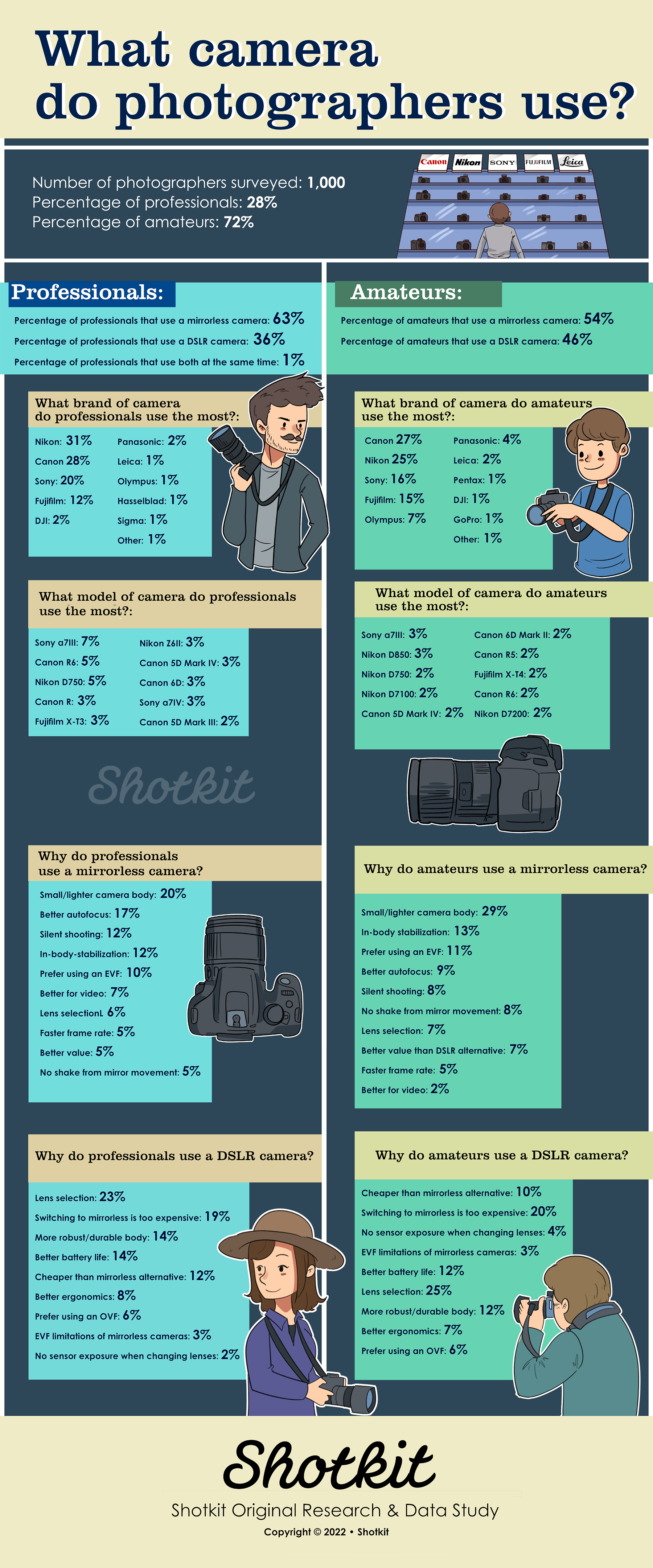ICN Roundtable: What cameras do photographers use? Shotkit survey says Nikon the most popular among pros
posted Thursday, September 29, 2022 at 5:00 PM EDT
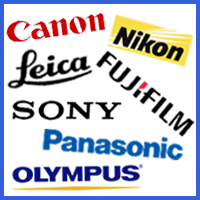
The team over at Shotkit recently published a gear survey of around 1000 photographers, including both professionals and amateurs, asking what kind of camera and what brand they used and why. The results are rather interesting, not only for what types of cameras are currently being used but also for which brands are more popular with pros compared to non-pros.
One of the main questions asked what type of camera do you use, mirrorless or DSLR. Given the steady increase in the number and in the capabilities of mirrorless cameras in recent years, it's no surprise that the Shotkit survey showed mirrorless cameras overtaking the trusty DSLR in popularity – both among professionals and amateurs alike. Interestingly, of the photographers surveyed, about 63 percent of professionals say they use mirrorless cameras while just around 36 percent use a DSLR camera. However, among the amateur photographers surveyed, things were more evenly split, with around 54 percent going mirrorless and 45 percent using a DSLR.
What's interesting to me about these results is that my assumption would have been to see the opposite results – with a larger contingent of pros still using DSLR systems compared to mirrorless. My thinking is that longtime professionals are likely to be heavily invested in a camera system, likely from Nikon or Canon, and have a big library of legacy DSLR lenses already in their kit. Further, they would more likely to stick with a tried-and-true DSLR as their workhorse tool rather than jump to a newer camera system. Yet, this is clearly not the case, based on this survey. Mirrorless cameras aren't necessarily a "bleeding edge" style of camera anymore. They have matured a lot since the early days, and many of them have features and capabilities beyond what DSLRs can offer, especially for users creating video content, which is increasingly important for amateurs and pros alike. Plus, the two big manufacturers, Canon and Nikon, have several highly-capable mirrorless cameras now on the market. Several brands and model lines of mirrorless cameras have also made big strides in terms of durability, reliability and ergonomics; factors that are key to a professional who needs a camera that can get the job done and not slow them down or break.
On the flip side, another interesting takeaway from this question is that a large contingent of amateurs still use DSLRs. Plus, even though there's a smaller percentage of pros still using DSLRs, that percentage isn't zero. As Shotkit also pointed out from this, DSLRs are still a generally popular camera format, and even though we see a new mirrorless camera one after the other these days, perhaps the DSLR format isn't necessarily dead yet.
DSLRs have been around for so long that the lens selection, especially from Nikon and Canon, is excellent. As the survey pointed out, one of the major reasons why many photographers, both pro and amateur, continue to use DSLRs is because of the versatile and expansive lens selection. The survey also pointed out that the expense in switching platforms is another big factor in many photographers sticking to their DSLRs.
We shared this article around with our fellow editors in the Image Creator Network, and it generated a bit of back-and-forth discussion. Read on below for our brief roundtable discussion of these survey results:
• • •
Dan Havlik, senior editor, Digital Photo and Digital Photo Pro: This was surprising: "Nikon is the most popular camera brand used by professional photographers. 31% of professionals use Nikon, closely followed by Canon (28%) and Sony (20%)."
Jeremy Gray, reviews editor, Imaging Resource: Yeah, that surprises me too. I wonder if those results would pan out over a larger sample, although 1,000 is a pretty sizable number.
Dan Havlik: Yes, that is a pretty big survey. Also, everybody seems to love the Sony A7 III.
[Editor's note: As you can see in the infographic above, the Sony A7 III was the most popular camera used by both professionals and amateurs.]
William Brawley, managing editor, Imaging Resource: I'm a little surprised about the A7 III's popularity with pros, as one might assume something like the A7R IV or maybe A9 would be more popular in that segment of users. But it makes a lot of sense overall, as the A7 III is a camera that offers a lot of bang for your buck. It's a great camera – excellent image quality, great AF and decent ergonomics (much improved from the prior generations). A pro-level camera doesn't have to be the most expensive one.
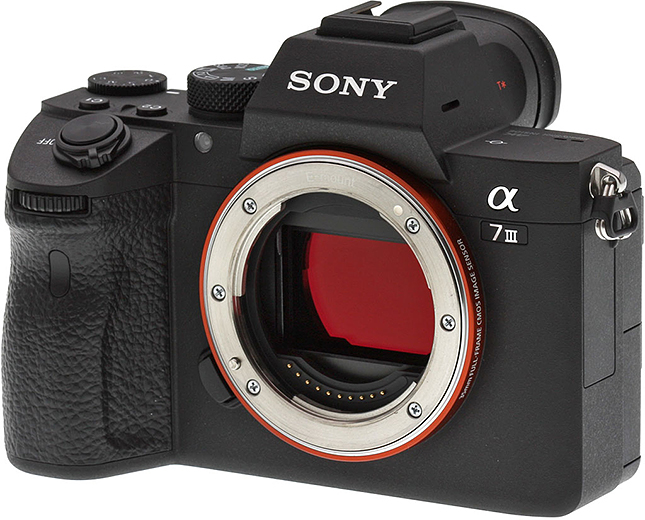
Following on that, though, as I mentioned the A7R IV. That camera actually doesn't show up in the survey at all. And when I look over the models of cameras used by professionals, both mirrorless and DSLRs, they models that aren't necessarily that high of a resolution. For instance, we see the 20MP Canon R6 as the second most popular pro camera, and not the Canon R5. We still see new cameras these debut with higher and higher megapixel counts, but that's not necessarily what a lot of pros are looking for, perhaps? (This follows along with an anecdote I heard a while back discussing professional photographers shooting Canon mirrorless cameras at the Olympics in Tokyo; Several were using the R5, but using only the smaller image sizes, not the full 45MP setting, as they simply didn't need the full high-resolution image sizes.)
Wes Pitts, editorial director, Outdoor Photographer: Adding to the above conversation regarding the pro survey/Nikon, it makes sense to me. "Pro" photographers are a relatively small subset of the overall camera market. Sony gained a lot of market share — and "mind share" with editors like us — by leading the full-frame mirrorless adoption, but pros are slower to change their systems because of lens investments. So while Sony captured a lot of affluent enthusiasts, it's believable that most pros didn't switch. I've shot Nikon since my first DSLR, and even though Sony had some exciting mirrorless products well before Nikon, I was happy with my cameras and lenses, and waited it out until Nikon introduced the Z system so that I could use my legacy lenses.
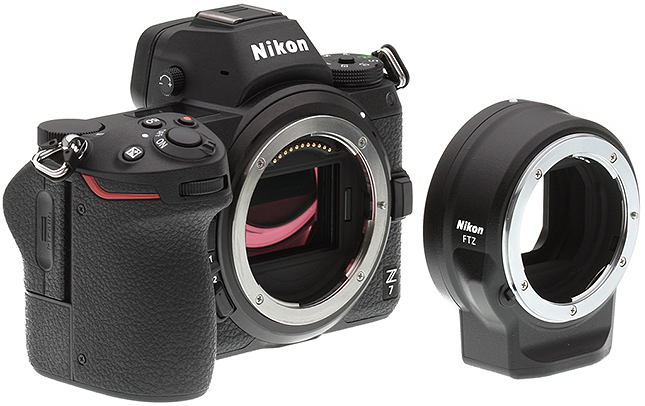
William Brawley: Yeah, that's a good point there, Wes, about pros not being apt to switch systems. Indeed, Sony has some excellent cameras, and their E-mount lens selection is certainly much better than it was a few years ago. But for the pro users who are switching to a mirrorless system, picking a platform like Nikon or Canon lets them easily use the lenses in which they already have a heavy investment. (And of course, Canon and Nikon still have DSLR lenses, such as tilt-shift lenses for instance, that don't have a native competitor in the Sony mirrorless system yet.) So yeah, agreed. I think legacy lens support is a big factor in why those who've gone to mirrorless have stuck with a Nikon or Canon system.
Also, especially in my experience with Nikon, the user experience is generally quite similar going from one of their DSLRs to one of their Z mirrorless cameras. There's an excellent familiarity there between their DSLRs and mirrorless cameras that helps make the transition to mirrorless easier, I feel.
Jeremy Gray: Yeah, I think that for new users, especially content creators that were getting in on the ground floor with online video creation, it made a lot of sense to jump straight into a mirrorless camera system. For a while, the best and most versatile full-frame options were all Sony cameras. If you hadn’t already invested a lot of time and money into a DSLR system, cameras like the early Sony A7/A7S/A7R models made a lot of sense. The newest models do, too, of course.
However, as Wes points out, existing pros were perhaps not as keen to jump into the nascent mirrorless market and abandon their DSLR cameras and lenses, unless they had some specific need that Sony’s early mirrorless cameras satisfied that Canon and Nikon DSLRs didn’t. For many photographers, waiting for Canon and Nikon’s full-frame mirrorless camera systems wasn’t a problem. Many pros still use DSLR cameras, as we can see in the ShotKit survey. 36% of pros is not a small number.
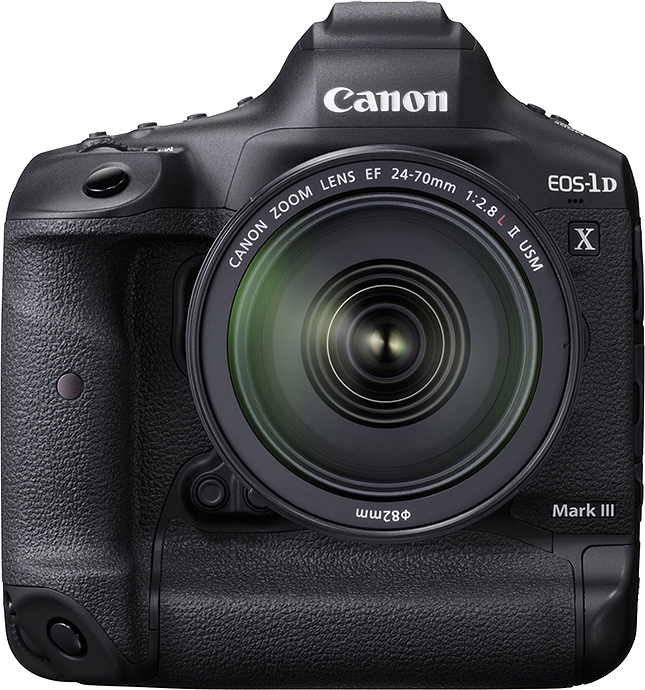
It’s also worth considering how DSLR versus mirrorless and general brand adoption rates may vary between different market segments. For someone who is using their camera to create photo/video content but maybe isn’t tuned into the photo industry, they may be missed by surveys by dedicated communities like ShotKit. The data is still interesting, of course, but I wonder if it misses important swaths of camera users.
Dan Havlik: We like to joke about all the YouTube videos in the last few years where photographers announce to their followers that they have ditched their Canon/Nikon/etc gear and are switching to Sony mirrorless cameras and lenses. And yet, according to this survey, the impact doesn’t seem all that significant. Of course, these YouTube videos are anecdotal testimonies from a small yet vocal group of photographers. Still though, you can’t discount what Sony’s been able to do in a relatively short time with their full-frame mirrorless cameras. Carving out a large portion of photographers from long-established brands like Canon and Nikon is no small feat, and Sony’s strategy of targeting influencers and YouTubers to get their message across seems to have worked. While Sony hasn’t totally leapfrogged Canon and Nikon yet, at least according to this survey, they have certainly made major inroads. The popularity of the A7 III alone is proof of that.
Overall though, I was probably more surprised to see in this survey that Sony trailed Canon and Nikon as the preferred brand of amateurs who might be starting fresh with their camera systems. I would have thought Sony would’ve been at least second considering how much marketing they have done. The venerable Canon and Nikon photography brands still carry a lot of weight, it seems.
• • •
So, what do you make of these results? What camera, or cameras, do you shoot with? We're curious to hear what you have to say. Sound off in the comments down below! And if you want to check out the full breakdown of the survey results, head over to Shotkit for the full rundown and insights.
(via Shotkit)
